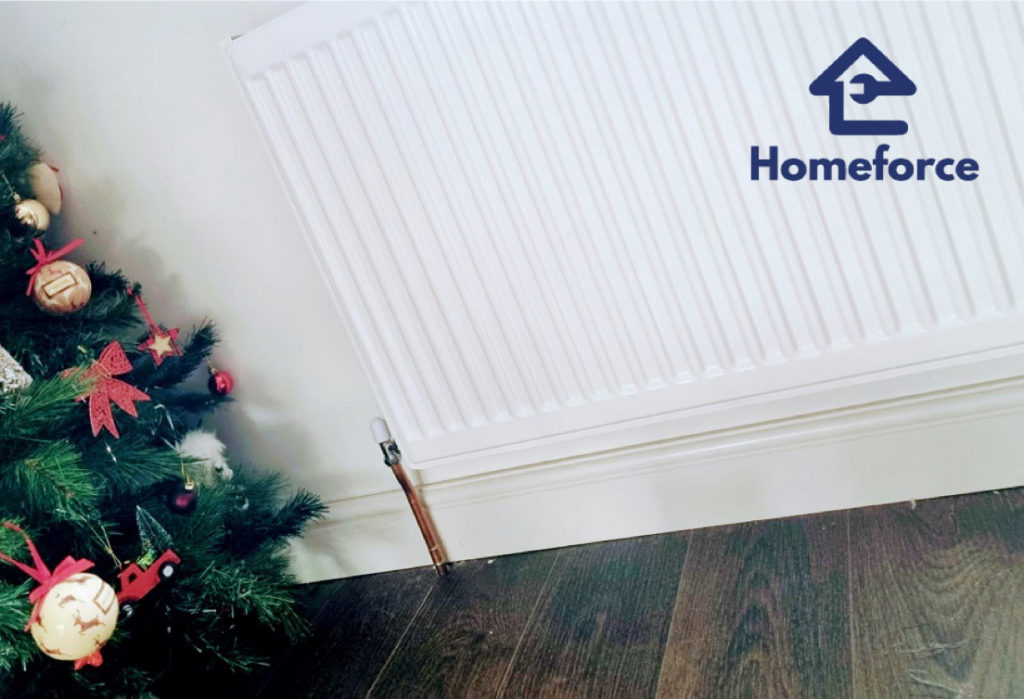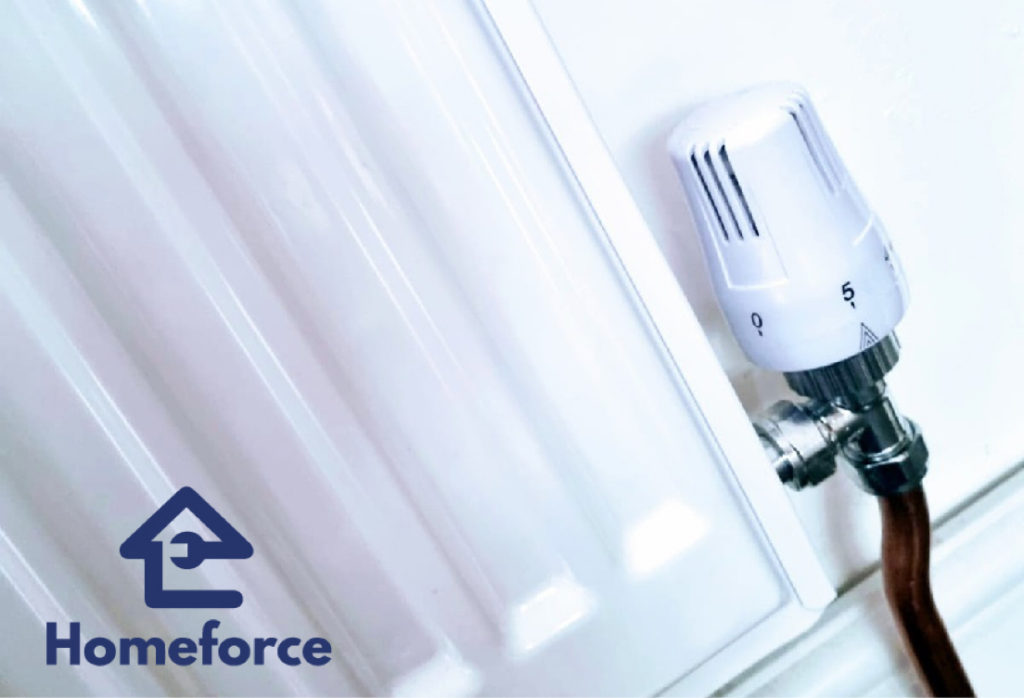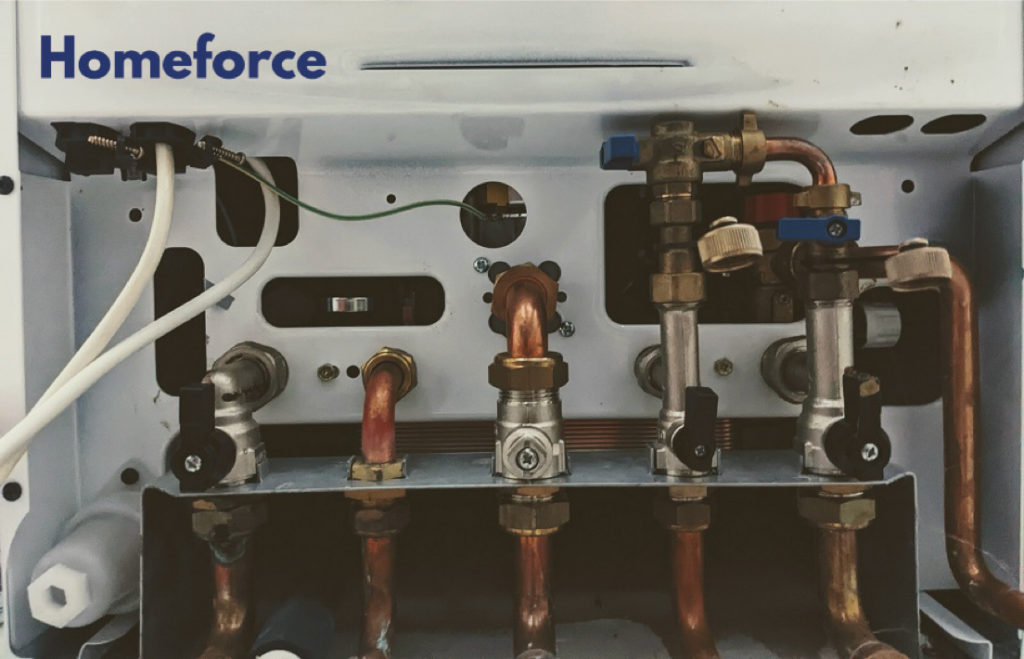Written On
Thu 15th December 2022
Written By
Homeforce
Category
Guides
Share This
According to a 2022 survey conducted by the UK Department for Business Energy & Industrial Strategy (BEIS), it found that 78 per cent of UK residents use gas as their main form of heating.
So it’s not surprising that when your boiler stops heating your radiators but IS heating water, it can be a cause for concern for a large number of us.
There are a few potential causes for this, which we’ll look at in more detail below.
But first, let’s take a look at the short answer so you can find out straight away why your hot water seems to be working, but not your radiators.
Our specialists in repair and maintenance plans for your domestic boiler here at Homeforce have put together a quick takeaway before we look at each cause in more detail.
- Thermostat problems
- Circulation pump issues
- Dirty filters
- Leaking radiator valves
- Radiator valves turned down too low
- Boiler pressure problems
- Loose wiring
- Low water pressure
Ok so with the mini answer covered, let’s find out a little more about what the problem might be if the boiler is not heating your radiators but is heating the water, starting with the most likely culprit.
Thermostat problems
If your boiler is turning on and off regularly then the problem may be with the thermostat. The thermostat controls the temperature of your home and tells the boiler when to turn on and off.
If the thermostat is set too low then the boiler will keep turning on and off in an attempt to reach the desired temperature.
This can cause problems with the boiler and make it less efficient.
You should check the thermostat to see if it is set correctly. If it isn’t, then you can try adjusting it yourself.
Circulation pump issues
The second most likely cause of your boiler not heating radiators is a problem with the circulation pump.
This pump is responsible for circulating hot water from your boiler to your radiators, and if it’s not working properly then your radiators won’t receive any heat.
It’s common for circulation pumps to fail over time, so if your boiler is fairly old then this could be the problem.
If you think the circulation pump might be the issue, then you can try bleeding your radiators.
This involves releasing any air that might be trapped in the radiator system, and it can sometimes get the pump working again.
If neither of these solutions works, then you should call a qualified engineer to take a look at your boiler.
They will be able to diagnose the problem and find a solution that works for you.

Dirty filters
Another potential cause of cold radiators (add a link to the article, My Radiators Are Cold: 9 Most Common Reasons, and What to Do) but your water is hot, which could be because of dirty or blocked filters.
These filters are responsible for trapping debris and dirt, and over time they can become clogged which reduces the flow of hot water to your radiators.
The filters are usually found in the boiler itself. If your filters are extremely dirty or blocked, then you may need to replace them entirely.
This is a relatively simple and inexpensive task that you can do yourself, or you can call a qualified engineer to do it for you.
If dirty filters may be the cause of your boiler not heating your radiators then you’ll need to call a qualified heating engineer to clean or replace them for you.
Leaking radiator valves
If your boiler is turned on but your radiators are still not getting hot then it could be due to leaking radiator valves.
These valves are responsible for controlling the flow of hot water to each radiator, and if they’re not working properly then hot water can leak out and cool down before it has a chance to heat your radiator.
Again, this is not a problem that you can fix yourself and will require a qualified heating engineer to take a look and replace the faulty valve.
Radiator valves are turned down too low
If your radiator valves are turned down too low then this can also cause your boiler to cut out. That’s because the water in the boiler will start to cool and this can lead to the boiler switching itself off.
To fix this, you’ll just need to turn up the valves on your radiators until they are all at around the same level.
Once you’ve done that, your boiler should start working normally again.

A problem with the flow switch
Another potential cause of your boiler cutting out could be a problem with the flow switch.
This switch is responsible for detecting whether there is water flowing through the boiler and if it thinks that there isn’t then it will cut the power to prevent the boiler from overheating.
If a faulty flow switch is a problem of why your boiler is not heating radiators but IS heating water up, then again, you’ll need to get in touch with a qualified heating engineer. He will be able to test and replace the switch if necessary.
Loose wiring
If there is loose or damaged wiring anywhere in your boiler system then this can also cause the boiler to cut out.
This is because loose wiring can create an electrical short which can trip the boiler’s safety switch and cause it to shut down.
Loose or damaged wiring in your boiler system is not an issue you should try to fix yourself. Boilers should always be then you should call a qualified engineer to come and take a look.
They will be able to fix any problems and get your boiler up and running again.
Low water pressure
If your boiler is cutting out because of low water pressure then you may need to top up the pressure in your system.
This can usually be done by bleeding your radiators.
Bleeding your radiators will let out any air that has become trapped in them and this will raise the water pressure in your system.
Once the radiators have been bled, the boiler should start working normally again.
If you’re not sure how to bleed your radiators then you can find instructions in your boiler’s manual or you can ask a qualified heating engineer to do it for you.
Boiler pressure
The final thing to check if your boiler is not heating radiators is the pressure. The ideal pressure for most boilers is between 1 and 2 bar, and you can check this by looking at the pressure gauge on your boiler.
If it’s showing a reading below 1, then you’ll need to top up the pressure.
To do this, you’ll need to find the filling loop on your boiler and turn it on until the needle on the pressure gauge reaches the 1 mark.
If the pressure is already at or above 1, then there may be a problem with the pressure relief valve.
This is a safety feature that prevents your boiler from becoming overloaded, and if it’s not working properly then it could be causing your boiler to cut out.
If you suspect that this is the case then you should contact a qualified heating engineer as they will be able to repair or replace the valve for you.

The boiler is not heating radiators but is heating water – Next step
So to finish on, as we can see having hot water but NO warm radiators to come to, can be a huge inconvenience, not to mention costly!
Homeforce’s Boiler Plan allows you to have peace of mind knowing that if your boiler breaks down, our nationwide network of engineers will get it running again quickly and efficiently.
With no additional fees outside of your monthly plan fee, our plans take away the unwanted stress that comes with a boiler breakdown.
Contact one of the friendly and knowledgeable members of our incredible team today to find out more!